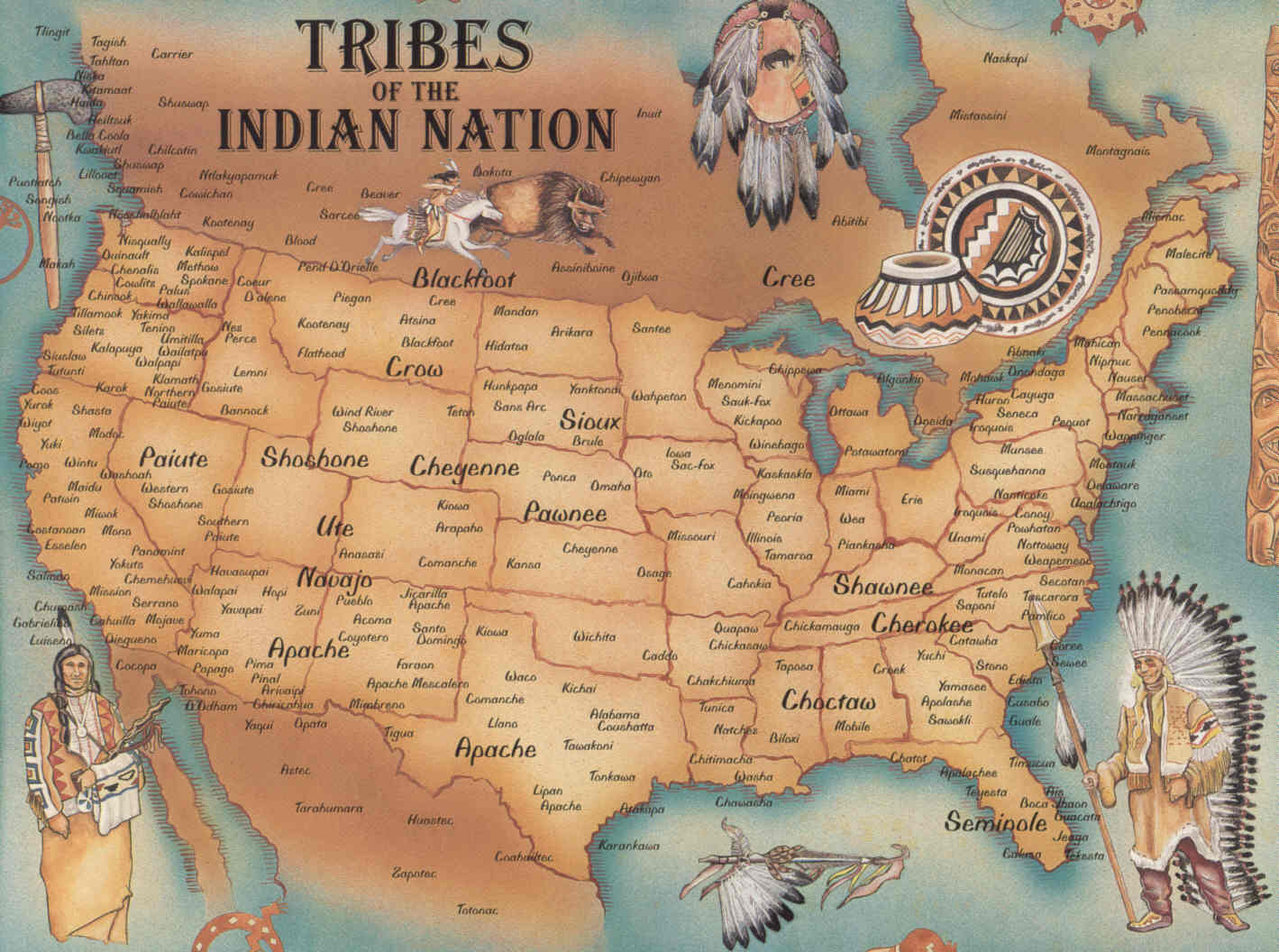My learning in this class has expanded in ways other than I expected. I knew coming in that I would be gaining valuable historical knowledge; information that I previously wasn't aware of. What I didn't know, was that by participating in this class I would be forced to turn the lens closer in on myself, and discover how these ideals fit into my life. I appreciate the fact that spirituality has been openly discussed, sparked by American Indian ideals. There is something so satisfyingly freeing about being able to speak your mind on commonly over looked topics in society. I've learned that American Indians with the voices to do so: Alexie, Silko, filmmakers, poets, and those simply living like the rest of us, are standing up and speaking out about who they are, who they've been, and who they're always going to be. Isn't that what we're all trying to do?
(I came across this map while searching for Indian inspired info, and I thought it was pretty interesting. I like the fact that any American upon glancing at this photo would probably associate it with some sort patriotic, inherently "American" image in their brain; yet the picture is titled "Tribes of the Indian Nation.")
Ultimately, we have control over what we learn, how we learn it, who teaches it to us, and how we apply that to our lives. The possibilities for us, an "advanced society", to apply abstract ideas such as love, humanity, forgiveness, humility, and modesty are not far from within our reach. But it takes one other idea: cooperation. That means each of us not only educating ourselves about culture and reality, but educating others, too. This class has served for a venue to continue the conversation, one that maybe we don't think about when we're by ourselves. But it is very clear: prejudice and racism are still relevant and real issues in today's society, despite how nice it is to think that we are all understanding and nonjudgmental individuals all of the time. We never stop learning and growing, and it is okay to question what we know and what we may not about our history, heritage and individual identity. But we must also recognize the histories that we all share, in this case, the sharing of land and life. Somewhere we (unfortunately it seems right from the beginning) got off track in our quest to live harmoniously with others, but it is never to late. It's like Leslie Marmon Silko's description of her own Pueblo beliefs, "In this universe, there is no absolute good or absolute bad; there are only balances and harmonies that ebb and flow (Silko p64)."

No comments:
Post a Comment